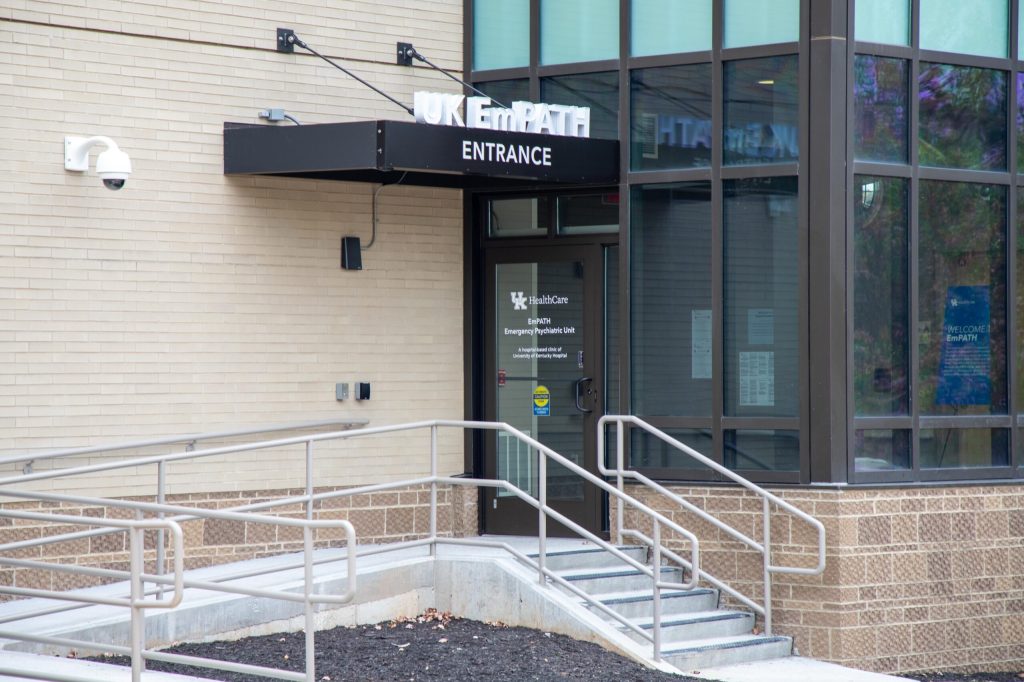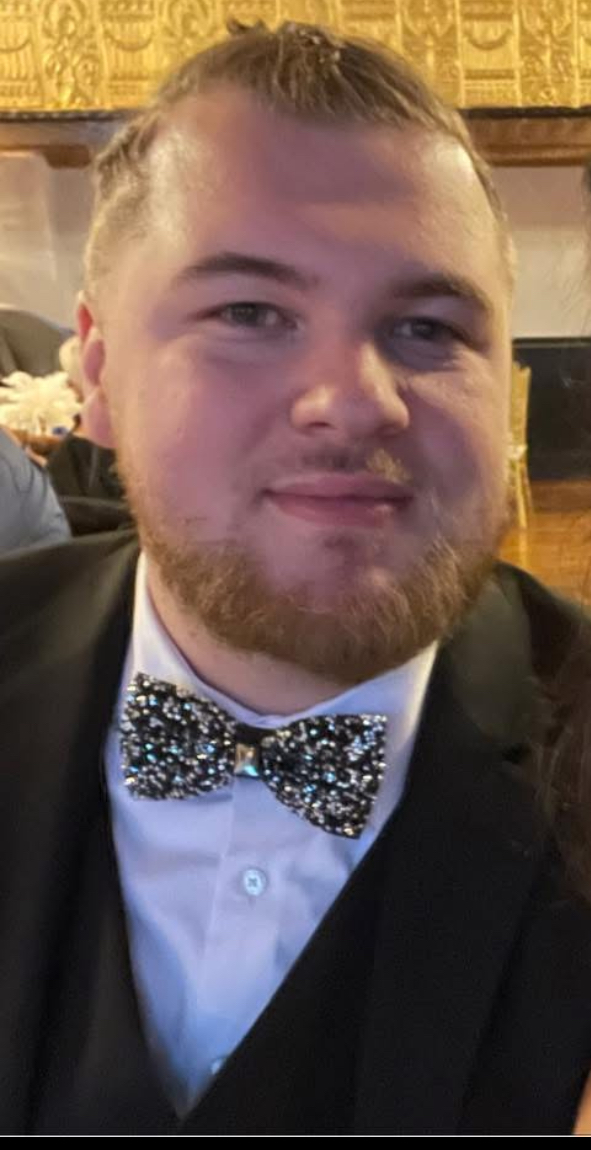Kentucky’s first emergency psychiatric unit opens in Lexington
Published 3:30 pm Friday, August 16, 2024

- The unit has a separate entrance. (UK photo by Hilary Brown)
|
Getting your Trinity Audio player ready...
|
By Allison Perry, University of Kentucky
State officials, community leaders and UK HealthCare officials celebrated last week’s opening of a new emergency unit in Lexington dedicated to the treatment of patients experiencing a mental health crisis.
The EmPATH (Emergency Psychiatric Assessment, Treatment and Healing) Unit is the first of its kind in Kentucky. It opened July 30 on the campus of Eastern State Hospital.
Trending
“The EmPATH model is a game-changer for mental-health care, and we are so proud to be the first in the state to open this unit,” said Robert S. DiPaola, UK’s co-executive vice president for health affairs. “For many, seeking care for a mental-health issue can be difficult, frustrating and even frightening. With EmPATH, we’re using a proven, evidence-based approach that allows our behavioral health team to provide fast, appropriate evaluation and care that’s easier for patients to access in an environment conducive to healing.”
The U.S. has about 30 EmPATH units. UK HealthCare and New Vista, a mental-health care provider in 17 counties in the Lexington area, have collaborated with leadership from the state Cabinet for Health and Family Services to bring this new model of emergency behavioral health care to Kentucky.
Pioneered by DR. Scott Zeller, an internationally known emergency psychiatry expert , EmPATH units are carefully designed physical environments that help patients experiencing an acute mental health issue receive immediate support. Instead of individual treatment rooms, the units are wide open spaces with comfortable seating. Upon arrival, individuals will interact with supportive health care providers including psychiatrists, nurses, social workers, and even peer support specialists and can stay in the unit for up to 23 hours.
Eastern State Chief Administrative Officer and psychologist Lindsey Jasinski says peer support is one of the main factors that has made the model so successful. Patients will have the chance to speak to others who have deal with taking medication, receiving therapy, and participating in different programs.
“We have those folks here in the unit to say, ‘Can I share my experience with you?’” Jasinski said. “It can be helpful to hear from someone who has been in a difficult place and been able to successfully navigate that. It provides hope, and that’s what the EmPATH model is all about.”
At roughly 11,000 square feet, the EmPATH unit has room for up to 12 patients. Providers and support staff will regularly assess the individual’s symptoms and develop a care plan, which could include a treatment plan and discharge home with connection to appropriate outpatient services, or admission as an inpatient for round-the-clock care.
Trending
Studies show that 60 to 70 percent of individuals who come to an EmPATH unit are stabilized and back home within 24 hours; patients treated in these units are also far more likely to continue their care. A study published in Academic Emergency Medicine showed that 60% of individuals in rural areas with suicidal thoughts or ideation sought follow-up care after their initial treatment in an EmPATH unit.
In addition to providing faster, more appropriate care for psychiatric patients, the EmPATH unit will help reduce the load on traditional emergency departments. A 2020 study of emergency-room visits related to mental health showed an increase from 6.6% to 10.9% from 2007 to 2016. Zeller and the physician-owned partnership Vituity, which helps hospitals develop their own EmPATH units, estimate that 12 to 15% of ER visits are related to behavioral health.
While ERs can provide critical care to acute injuries, illnesses, and traumas, they often do not have the resources or staffing to effectively treat individuals in a mental health crisis. Because ERs must prioritize patients with life-threatening issues, those coming to an ER for mental-health care are likely to experience long wait times in an environment that isn’t conducive to helping these individuals.
“Our emergency departments give amazing care and save countless lives every day,” said Dr. Andrew Cooley, a UK HealthCare psychiatrist who has served as chief medical officer for Eastern State Hospital since 2013. “But we know that patients who come in with a life-threatening injury will need to take priority, and patients experiencing a behavioral health crisis will be further down the list to receive treatment. EmPATH is the alternative to that – a patient shows up here, and we immediately greet them and begin care.”
The EmPATH unit is open to adults aged 18 and over experiencing a behavioral health crisis, which has a broad definition: any mental-health problem that impairs their ability to perform normal daily functions, take care of themselves, and keep themselves safe. That could include those seeking help for a substance use disorder, those experiencing depression and anxiety, someone who is thinking about self-harm or suicide, and more. Patients may be brought in through emergency medical services, or may self-refer and bring themselves in.
“The patient defines the crisis. We’re very open-door,” said Marc Woods, Eastern State’s chief nursing officer. “We immediately try to assess what their needs are – not only for behavioral health, but also their basic needs. It allows our clinicians to say, ‘Are you hungry? Would you like a Coke?’ We’re quickly building a relationship so we can help address not only a mental health issue, but also get them connected to other services to improve their overall health and wellness.”
The EmPATH unit is part of UK HealthCare and will have its own entrance at Eastern State’s campus, on Bull Lea Road in Lexington. The entire hospital is owned by the state Department for Behavioral Health, Developmental and Intellectual Disabilities and is managed by UK HealthCare. It operates 195 acute-care beds and provides critical, recovery-focused psychiatric care for adults from a 50-county region of the state.





